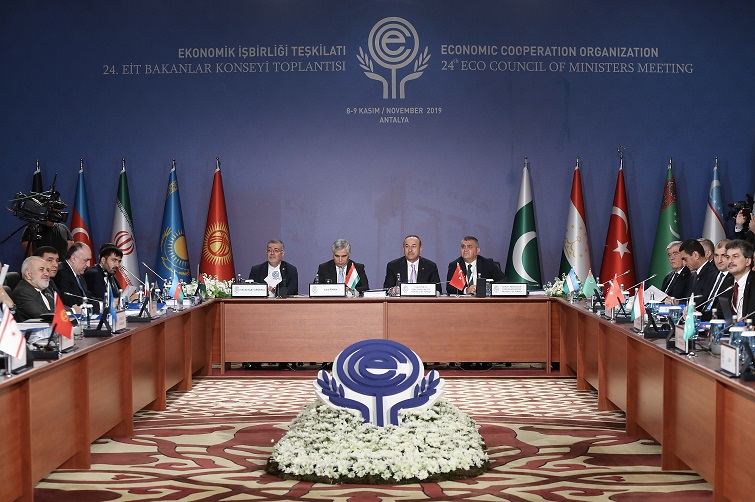Regionalism and Pakistan
Tariq Mahmood Khan
Globalization is the product of this century and it has deep impact on all parts and all nations of the world. Many new phenomena have emerged as a result of exclusive globalization. Although regionalism is not a new phenomenon, it has got an immense importance as a by-product of globalization. New regional groups, unions and organizations like the European Union and SAARC have emerged. China’s “One Belt, One Road Initiative” is also a form of regionalism. These organizations as well as the project have same objective: economic cooperation at the regional level, and they are considerably successful in achieving that.
Economic cooperation and development through regional organizations has not been a popular stance in our foreign and internal policies. Our efforts to become a part of such organizations have been very weak. In the past, we had good chances to gain benefits through regional pacts and accords, but we lost all the chances. RCD (Regional Cooperation for Development), which was established by Pakistan, Iran and Turkey in 1964, had a great potential for Pakistan’s economic prosperity. Similarly, when ECO (Economic Cooperation Organization) was revived in 1992 and 10 countries became its members; this could have been a game changer in the region. That was a big economic opportunity for us. We could not envision its future prospects, and its infrastructure was not established. Central Asian States, which got independence from the Soviet Union, were landlocked but rich in natural resources. They, along with Afghanistan, needed a land route which could connect them to the world and the most feasible route for them was through the Pakistani ports of Gwadar and Karachi. But due to the external pressure and internal deficiencies, we failed to stabilize this organization. Its result is that we could not do away with our economic dependence on the West.
SAARC was established for cultural, educational and economic cooperation in South Asia. It could not live up to the expectations due to India’s hegemonic designs.
In June 2017, Pakistan became a full member of the Shanghai Cooperation Organization (SCO) – a Eurasian organization basically designed for the economic motives. This can be a beneficial bond for the members in the future, but remembering our past and present scenario, there is little hope of its success for Pakistan.
Pakistan lags far behind many countries in terms of regional cooperation. But, how it happened? There are many factors involved in it.
Afghanistan is a source of unrest and terrorism in South Asia for the last four decades. Unfortunately, our ties with it are not so good. Indo-Afghan nexus at present has deteriorated these relations. Afghanistan is a natural geo-strategic partner of Pakistan but its authorities are ignoring ground realities. This attitude is harmful for both the countries. Afghanistan is the third largest export market for Pakistan. Hence, in order to not only sustain this trade but also to enhance it, taking solid steps is the pressing need of the hour.
Similarly, Pakistan’s trade with India can be increased to a great extent. India can be given MFN (most favored nation) status; though only after securing our own national interests.
Pakistan’s relations with Iran are rapidly deteriorating especially after the introduction of the Indian factor. The failure of Iran-Pakistan gas pipe line project has seriously damaged both countries’ interests. Sanctions have led Iran towards a strangulated economy. After nuclear agreement with the West, i.e. Joint Comprehensive Plan of Action (JCPOA), it was thought that the Iranian economy will recover slowly. But US withdrawal from this agreement has aggravated the circumstances. Pakistan can have cordial relations with Iran but our strong relations with Saudi Arabia are, too, a hurdle in its way. Iran is in competition with CPEC (China-Pakistan Economic Corridor) by developing Chabahar sea port which has investment – thus influence – of India. So, in near future, any possibility of strong relations with Iran is not in sight.
China is investing heavily in Pakistan especially on the CPEC. China’s vision is the promotion of regionalism but our three other neighbours are marching in the opposite direction. Moreover, our region has deep divide of pro-American and pro-Chinese sentiments. Pakistan is naturally tilting towards China, so we are going to be economic partner of China. The new dimensions of regionalism in Asia have emerged and our future is linked with it.
The writer is an Assistant Professor (Pak. Studies) at University Of Central Punjab (Faisalabad Campus)
 Jahangir's World Times First Comprehensive Magazine for students/teachers of competitive exams and general readers as well.
Jahangir's World Times First Comprehensive Magazine for students/teachers of competitive exams and general readers as well.



